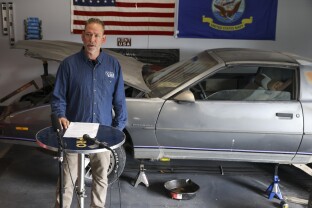Independent candidate Dan Osborn and the Democratic Party have publicly kept each other at arm’s length during the Navy veteran’s run for Republican Sen. Deb Fischer’s seat in Nebraska.
But behind the scenes, Democrats and their allies are doing plenty to try to get him elected in the unexpectedly competitive Senate race.
A review of campaign materials, finance documents and internal discussions among Democrats reveal that Osborn and a super PAC backing his candidacy are partially reliant on groups and donors who normally work for Democratic candidates.
